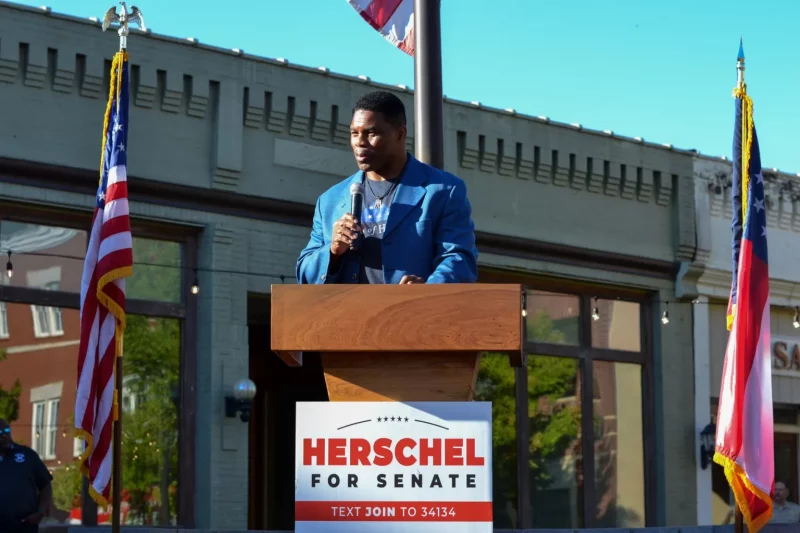What Herschel Walker’s Candidacy Means to Black America
Share
Explore Our Galleries
Breaking News!
Today's news and culture by Black and other reporters in the Black and mainstream media.
Ways to Support ABHM?
By Chris B. Bennett, Word in Black
Georgia Republicans pitting Walker against Sen. Raphael Warnock shows that overturning voter suppression and unjust laws is just around the corner.

Whether or not you agree with Herschel Walker’s politics, the one thing that you should take into consideration is what his candidacy represents in terms of the political empowerment of Black folks in America.
No, I’m not talking about Herschel Walker being a polarizing or inspiring individual running a transformational campaign like Stacy Abrams or Barack Obama. I’m talking about the man who was hand-picked to run against incumbent Senator Raphael Warnock because the grand-selector of Republican candidates — Donald Trump — believe that the best way to unseat Warnock, who is Black, is to run a Black Republican against him instead of running a traditional Georgia Republican against him.
Remember, Warnock won his first election to the Senate by defeating then-incumbent Republican Senator Kelly Loeffler. A feat that many people still have to pinch themselves about and marvel at to this day.
[…]
The truth of the matter is that we are witnessing something unimaginable five, 10, 15, and definitely not 20 years ago with a Black man running for re-election to the U.S. Senate in the bright red state of Georgia, and fighting to retain his seat against another Black man.
This is a testament to what a continued process of political organizing, voter education, and empowerment — when done properly — can do, even under the renewed pressure and constraints of what many, including myself, believe to be blatant voter suppression in the State of Georgia.
The hard work and unwavering keeping-their-eye-on-the-prize mentality of Stacy Abrams and so many other unsung heroes in the State of Georgia has set the stage, flipped a red state to a purple state, and more importantly shifted the political power, influence, and hopefully, over time, the resources to people who have been underserved in Georgia for far too long.
Now, let me be clear. Black folks in Georgia did not elect Warnock on their own, but they certainly can take credit for putting him over the top. Which means that Black folks in Georgia, regardless of their political affiliation, can and will be the deciding factor in all major elections moving forward.
Bennett’s full editorial is available on Word in Black.
Several Black candidates made history in this recent election. However, voters felt frustration at the George runoff.
Political topics are a few of those we cover in our breaking news archive.











Comments Are Welcome
Note: We moderate submissions in order to create a space for meaningful dialogue, a space where museum visitors – adults and youth –– can exchange informed, thoughtful, and relevant comments that add value to our exhibits.
Racial slurs, personal attacks, obscenity, profanity, and SHOUTING do not meet the above standard. Such comments are posted in the exhibit Hateful Speech. Commercial promotions, impersonations, and incoherent comments likewise fail to meet our goals, so will not be posted. Submissions longer than 120 words will be shortened.
See our full Comments Policy here.